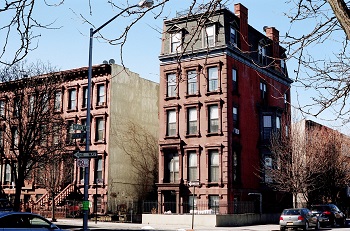Selling a Rental Property
 Owning a rental property has its perks. Done right, you can receive a regular revenue stream that covers the mortgage. In addition, it will provide you with a respectable profit each month. Assume you bought a Kansas City property ten years ago for $400,000. In addition, to the regular income, you were able to take $10,908 annual depreciation expense deductions on your tax return (3.636 percent X $300,000) for each full year you rented it. You can’t depreciate the dirt under the property equaling $100,000. But what about selling a rental property?
Owning a rental property has its perks. Done right, you can receive a regular revenue stream that covers the mortgage. In addition, it will provide you with a respectable profit each month. Assume you bought a Kansas City property ten years ago for $400,000. In addition, to the regular income, you were able to take $10,908 annual depreciation expense deductions on your tax return (3.636 percent X $300,000) for each full year you rented it. You can’t depreciate the dirt under the property equaling $100,000. But what about selling a rental property?
Selling a Rental Property
Interested in selling a rental property? That income-generating machine can cost you when you sell. That’s because you will pay taxes on the capital gains (profit) when the property sells. For 2018, the long-term capital gains tax rate is 15% if you are married filing jointly with taxable income between $77,201 and $479,000. If your income is $479,001 or more, the capital gains rate is 20%.
If you bought the rental property for $400,000 and now want to sell it for $500,000 and pay no real estate commissions, you would think that you have a gain of $100,000. As Harvey S. Jacobs, a real estate lawyer with Jacobs & Associates Attorneys At Law in Rockville, explains it in the Washington Post, “Although you state that your net cash profit is $100,000, your taxable long-term capital gain is $209,080. Assuming you are in the 15 percent capital gains tax bracket, your capital gains tax liability would be $31,362. You can calculate this number by starting with your net sales price of $500,000 and subtracting your adjusted tax basis of $290,920 (the original cost of $400,000, minus accumulated depreciation, $109,080). The result is your $209,080 capital gain. At the 15 percent tax rate, your long-term capital gain tax liability is $31,362.”
Wait, there’s more.
IRS regulations generally require that you depreciate your rental property over 27.5 years, or 3.636 percent per year. To calculate your depreciation deductions, let’s assume that your $400,000 purchase price consisted of land valued at $100,000 and the improvements valued at $300,000. Remember, you were able to take $10,908 annual depreciation expense deductions on your tax return (3.636 percent X $300,000) for each full year you rented it. This non-cash tax deduction reduced your taxes on an annual basis. Once you become a seller, you are required to pay back the non-cash tax deduction, as a depreciation recapture tax.
When you apply the 3.636 percent annually against your $300,000 depreciable basis for your 10-year holding period, you have taken $109,080 in accumulated depreciation deductions. That amount is “recaptured” and taxed at the 25 percent tax rate. So, in addition to your capital gains tax, you will incur $27,270 in depreciation recapture tax.
Because this is an investment property, you are not eligible to use the $250,000/$500,000 capital gains exclusion. IRS publication 544, available online at www.irs.gov, contains detailed instructions for calculating capital gains and depreciation recapture for the residential rental property.
At this point, you might consider using a 1031 exchange.
Ask for FREE information about How to Sell Your House Fast.
Terra Firma Property Solutions, LLC is a professional, full-service real estate solutions firm.
We buy and sell properties throughout the greater Kansas City area. We specialize in buying distressed homes, then renovating and reselling them to home buyers and landlords. Terra Firma Property Solutions: excited to be part of the economic rejuvenation of Kansas City and its surrounding areas.
Call us today at (816) 866.0566
Photo Brandon Nickerson
